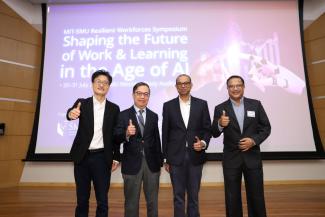
As the education system incorporates Artificial Intelligence (AI) into curriculum design, and as businesses and society at large integrate AI into their daily activities, the bigger question is how to ensure our workers can remain resilient as AI develops and disrupts. How can we better understand and shape the impact of AI on learning, employment, and society’s future readiness?
This is a research priority that Singapore Management University (SMU) will focus on, as it prepares students and workers for the challenges and opportunities of learning with AI. SMU Vice Provost (Research) Professor Archan Misra announced this at the start of the MIT-SMU Resilient Workforces Symposium: Shaping the Future of Learning and Work in the Age of AI on 30 July.
Vital Research on Learning Better
He said, “Against the dramatic drop in the half-life of skills and careers, there is actually enough evidence that investing in lifelong learning and investing in adult reskilling has a strong payoff in terms of GDP. But AI has obviously changed the equation, as it is poised to disrupt a lot of jobs, both in quantity, and in quality, especially in white collar knowledge work.”
Under its Resilient Workforces Research Agenda, he said, SMU will focus on three pillars. “First, at the individual level, how do we ensure the individual can thrive, learn better and work better with machines and AI? Second, how can firms and organisations redesign their workflows and processes to make the best and durable use of human and AI/robot teams? Third, at the societal level, we need new lifelong learning policies and institutional ecosystems, and also leverage AI to monitor the changing nature of skills and competencies that are required in labour markets and understand the gains arising from reskilling investments.”
Prof Misra is the Singapore-based Co-Lead Principal Investigator for the Mens, Manus and Machina (M3S) programme of the Singapore-MIT Alliance for Research and Technology (SMART), the research enterprise of the Massachusetts Institute of Technology in Singapore.
The SMART M3S Lead Principal Investigator, Prof Jinhua Zhao of the Massachusetts Institute of Technology (MIT), shared M3S’ vision of bringing mens, manus, and machina together - an extension of MIT’s motto ‘mens et manus’ – Mind and Hands, a reflection of MIT’s engineering tradition. He said, “When it comes to collaboration between humans, we have thousands of years of experience, but we are still newbies in collaboration between humans and machines. We need to develop a new set of languages, tools, norms, and institutions to enable that.”
Research Grounded in Real-World Applications
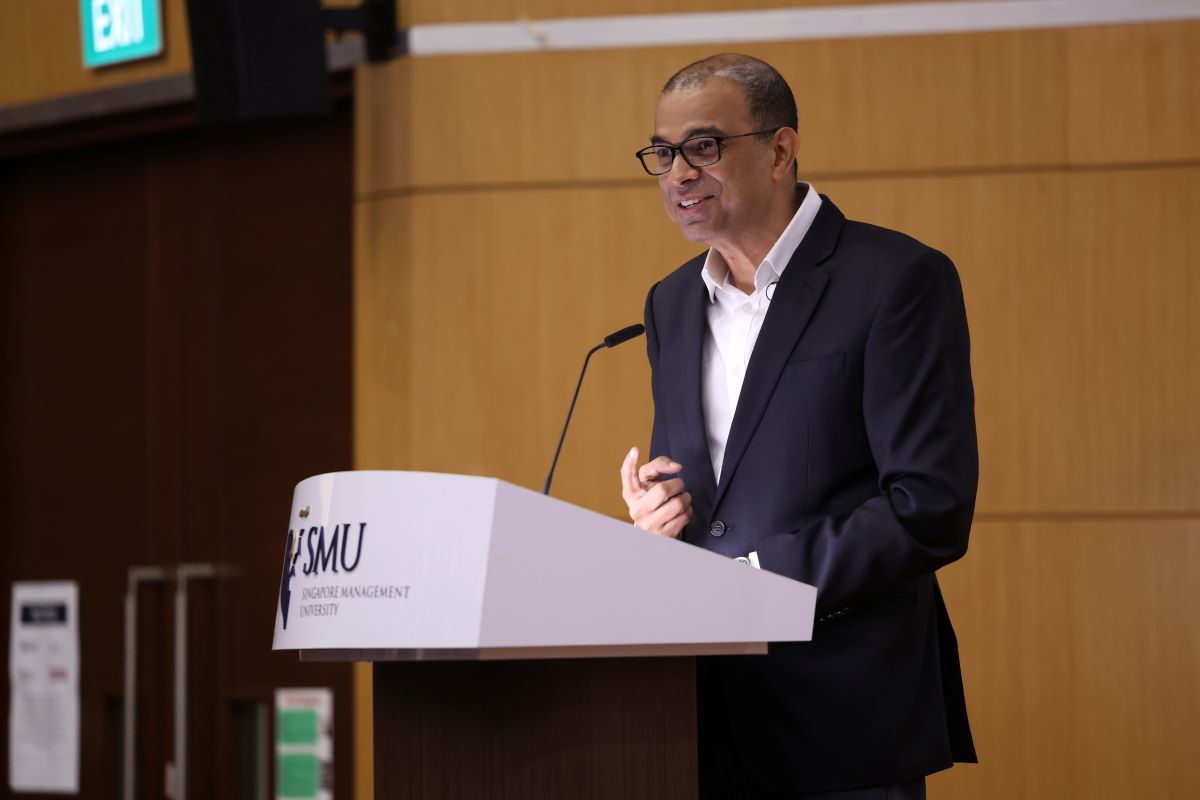
Gracing the event as Guest-of-Honour was Dr Janil Puthucheary, the Senior Minister of State for the Ministry of Education and the Ministry of Sustainability and the Environment. He shared that he was heartened that SMU has identified ‘workforce resilience’ as a research priority and added: “SMU and MIT SMART have actively sought out and established partnerships with organisations such as Changi Airport Group and Mendaki - two examples demonstrating the diversity of established partnerships. These partners provide SMU with problem statements that arise in their day-to-day work, so that research outcomes will be better tied to real impact.”
The M3S programme is a large interdisciplinary research programme, funded by the National Research Foundation CREATE and led by MIT, with two key Singapore partners, namely SMU and the National University of Singapore. SMU is heavily involved in the research related to robotics and Augmented Reality/Virtual Reality technologies, and joint optimisation of human and machine resources, under M3S.
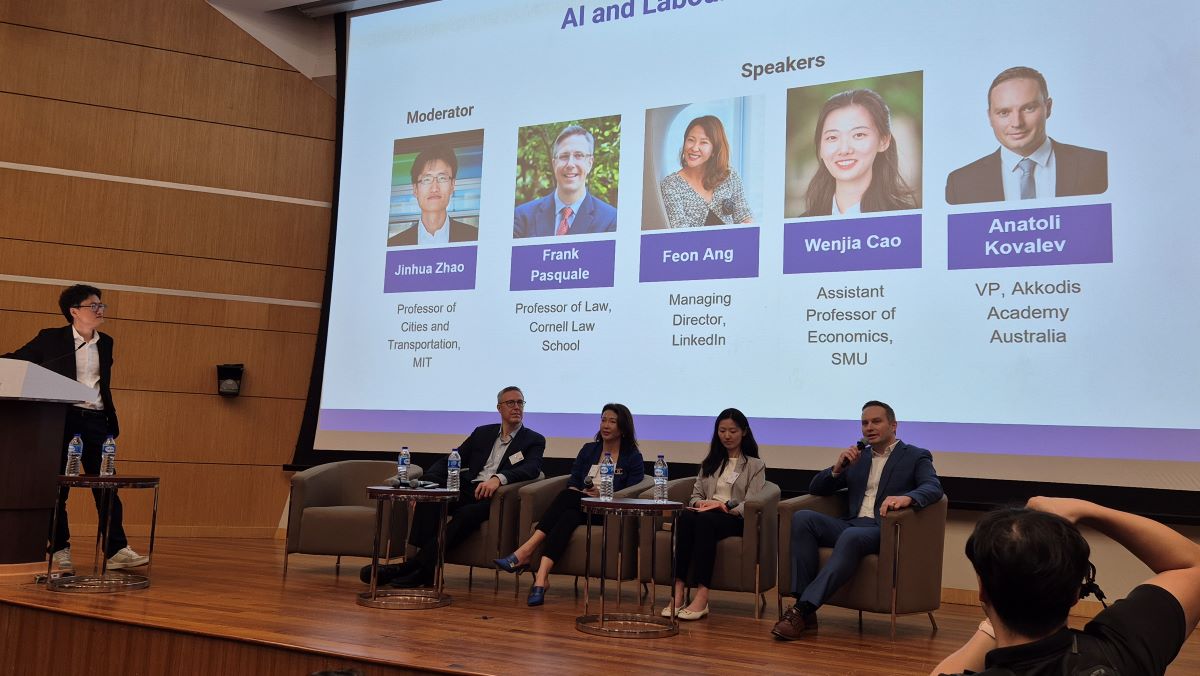
The two-day symposium was attended by 200 academics, policy-makers, industry leaders and students exploring cutting-edge developments in AI.
The first of three keynotes on ‘Empowered or Eroded? Navigating Human Learning in the Age of AI’ by Prof Dragan Gasevic proposed a novel conceptualisation of knowledge and skills that can guide the development of adaptive learners and cautioned against the danger of AI support diminishing the meta-learning capabilities of humans. The second, ‘The Paradox of the Internet and the Elitism of AI’ by Mr Gita Wirjawan, the founding partner of Ikhlas Capital, addressed the asymmetries in knowledge, opportunity and power in Southeast Asia, and highlighted key infrastructural challenges that must be overcome to harness the potential of AI.
The third, ‘Learning with AI: Multi-Level Implications for Work, Organisations and Innovation’ by Prof Batia Wiesenfeld, discussed how AI alters our cognition and social interactions, and affects how colleagues in organisations collaborate and compete with AI. Academics and industry leaders on five panels also presented and spoke on AI’s impact on human learning, the labour market, and human capital.
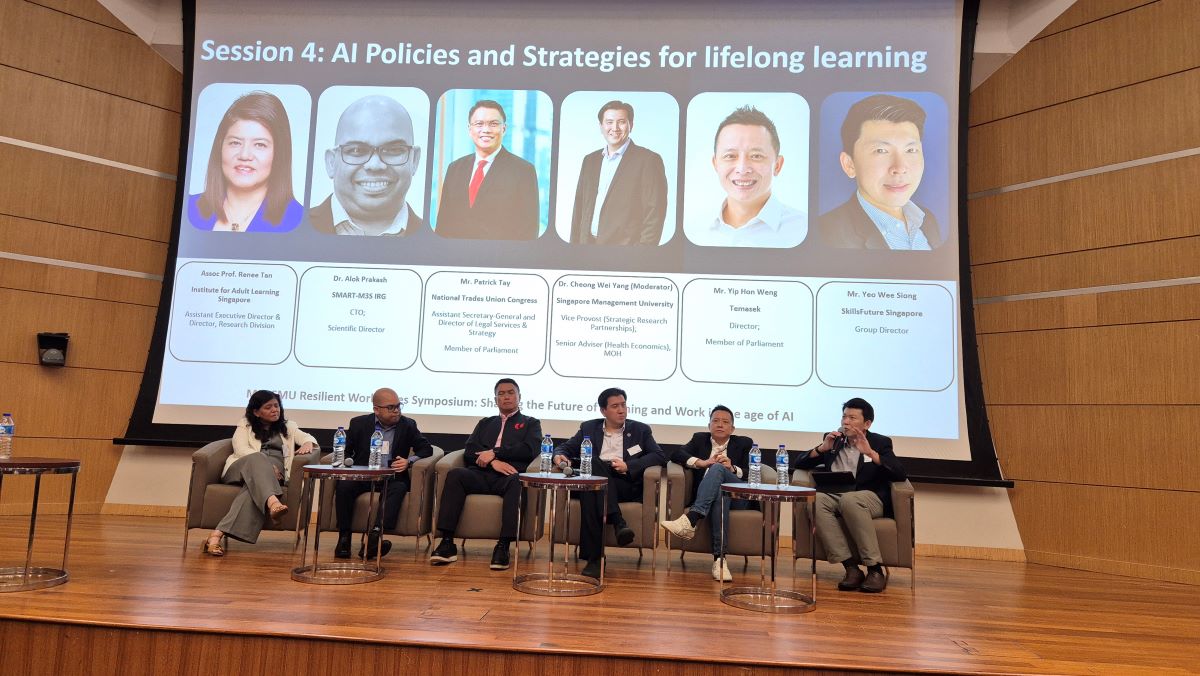
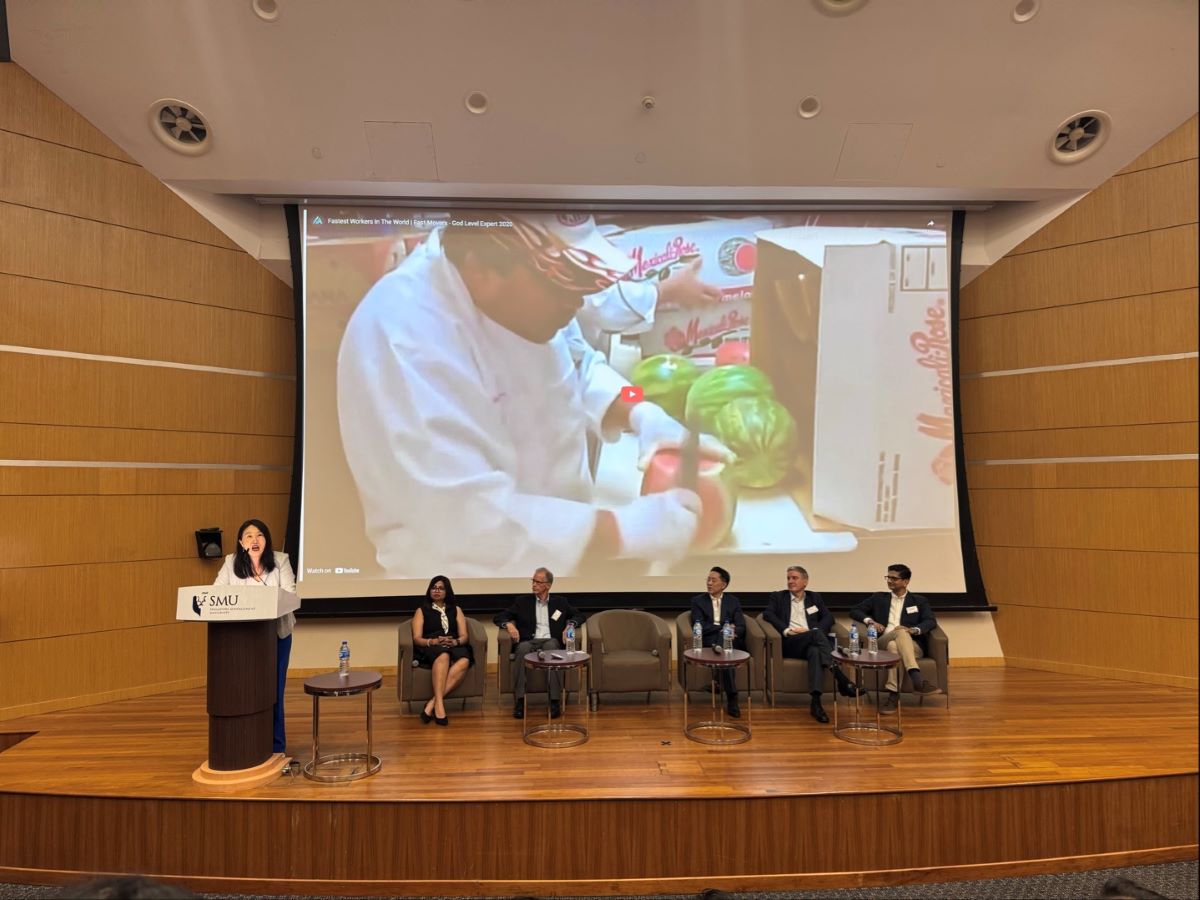
SMU Vice Provost (Strategic Research Partnerships) Dr Cheong Wei Yang, led a panel that focused on AI policies and strategies for lifelong learning. It discussed the ways that some organisations have been using to enhance workers’ knowledge of and use of AI as job roles and job demands change. In concluding his panel, he said, “Preparing our workers for lifelong learning in the age of AI will require the coordinated effort of employers, academia and government, each playing their role. But more importantly, we must ensure that our workers are motivated and empowered to equip themselves for a future where humans, AI and robots will co-exist symbiotically in our workplace.”
SMU Vice President (Partnerships and Engagement) and Lee Kong Chian Professor of Communication & Technology Lim Sun Sun moderated the final panel, which touched on Organisations and Human Capital.
Wrapping up the symposium, she said, "The last two days have given us powerful glimpses and insights into how AI is truly transforming the future of work. We've seen the critical importance of making big bets, and the imperative to reflect, rethink, reimagine, and redesign our processes as we undergo this rapid transformation."